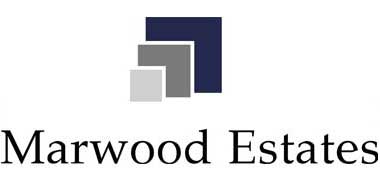Private Equity Investments in Houston
Marwood Estates Sponsors

Marwood Estates manages its growth through direct private equity investments and partnering with accredited investors and fund advisors.
As a Sponsor, Marwood Estates will either take a position as the General Partner or Managing Member of the investment partnerships while providing investor relations.
Our partners include pension funds and their advisors, as well as clients of wealth managers, family offices, high net worth individuals, friends and family members.
Marwood Estates is seeking capital investors to provide debt and equity financing for development projects from qualified accredited investors.
Marwood Estates is always available to discuss potential investments or becoming a partner for future investments.
Private Equity Investment Structures
PRIVATE EQUITY JOINT VENTURES
Marwood Estates offers opportunities for equity joint ventures for structuring partnerships between equity partners and sponsor for real estate development projects. Financing and income sharing are structured as a conditional commitment of the agreement.
PRIVATE EQUITY FUNDS
Marwood Estates is open to agencies and family fund investors for structuring PE structured funds for investment in clearly defined property assets. Funds investment distributions can be concentrated or diversified based upon the fund’s goals.
PREFERRED PE PROJECTS
Marwood Estates is also open to structuring preferred PE funds / projects to allow for additional capital needs. These funds are normally offered for redevelopment projects that require intermediate financing for stages of capital requirements.

Private Equity Joint Ventures

Benefits for our Investors:
- Dedicated and experienced professionals
- Real Estate investment strategies for all economic cycles
- Potential income and/or potential capital gains from investments
- Long-term and short-term strategies focused on maximizing risk-adjusted returns through economic cycles
- Multi-asset class track record and experience (senior debt, subordinated debt, private equity)
- Disciplined growth with a focus on long-term value creation and capital preservation
- Alignment of interests between our investors and our partners
- Flexible and creative structures
- Ability to grow capital base with client needs over time
- Execution speed
Financing Real Estate Investments
Planning and preparing real estate investment financing is an essential required step in preparing any real estate acquisition or development project.
There are many different types of real estate financing mechanisms to evaluate for function, feasibility and cost. Each mechanism has its pros and cons;
Conventional Commercial Finance – Conventional commercial financing can be used to acquire up to 5 multiple properties with one loan.
Lenders will require 25% down and the underwriting requirements can be very restrictive and critical of the borrower.
- Pros – Fast processing time, low documents required
- Cons – Higher interest rates, requires a business plan, pledge collateral,
Equity Capital – Equity capital financing is acquired by the stakeholders of the property instead of debt financing.
The equity capital is used to acquire, make improvements of the property.
- Pros – Allows company to raise additional capital in future, provides some control over assets to stakeholders
- Cons – Higher risk v reward to stakeholders, could loss control of assets
Debt Finance – Debt financing represents taking out a loan to finance an asset. The terms and conditions can vary drastically for a loan.
Debt financing normally provides a fixed souse of capital at a stated interest rate for a stated term.
- Pros – Debt financing is a more cost effective method of financing property.
- Cons – Must pay back the loan regardless of assets ability to make income, debt financing can restrict the borrowers ability to acquire additional capital
Hybrid Finance – Hybrid financing is using a combination of multiple finance instruments to capitalize a property.
A common example of this method is when investors supplying equity capital with a sponsor for the down payment and use debt financing for the largest portion of the total required cost of acquisition or improvements.
Short Term v Long Term Finance – Term financing allows the borrow the ability to structure debt financing to meet their investment needs.
In addition, the shorter the term the higher the payments. But the total interest expense will be smaller.
Additional benefits of length of loan terms can be effective for structuring multiple loans as in the case with construction loans which bridges financing between short term until property is moved to a permanent financing solution.
CAP Rates – CAP rates are a ration measure of rate of return on a specific property. The CAP rate is calculated by dividing the net operating capital (NOI) by the assets market value (price).
CAP rates should be used as a benchmark of performance and not as a determining factor in evaluating an investment.


